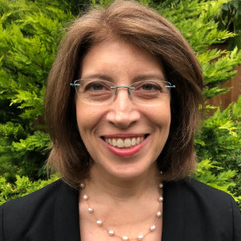Climate change represents a defining health challenge of our era, with profound mental health consequences. As future physicians, you will care for patients experiencing the full spectrum of climate-related psychological impacts.
Be able to
- Climate disasters produce:
- PTSD.
- Depression.
- Anxiety.
- Chronic stress.
- Eco-anxiety and solastalgia represent new forms of climate-related distress.
- Impacts occur through direct trauma, indirect stressors, and existential concerns.
- The “second storm” of mental health impacts often equals or exceeds physical impacts.
- Marginalized communities face disproportionate impacts due to differential exposure, vulnerability, and recovery capacity.
- Vulnerable groups include:
- Communities of color.
- Low-income populations.
- Displaced persons.
- Indigenous peoples.
- Children.
- Older adults.
- Those with pre-existing mental illness.
- Outdoor workers. Immigrants.
- Rural populations.
- Climate displacement creates severe mental health consequences.
- This is a justice issue: Those who contributed least to climate change suffer most.
- Multiple data sources track climate-related mental health impacts.
- Effective systems integrate traditional surveillance, population surveys, and real-time monitoring.
- Surveillance must capture disparities through disaggregated data and equity-focused design.
- Your clinical documentation contributes to surveillance efforts.
- Individual interventions include:
- Screening with validated tools.
- Evidence-based treatments.
- Addressing eco-anxiety appropriately.
- Psychological First Aid is the standard acute disaster intervention.
- Community resilience is protective, and physicians can foster it through social prescriptions and advocacy.
- Physicians can advocate for:
- Climate action.
- Mental health systems strengthening.
- Health equity.
Integrate climate consideration into your practice
- Ask about environmental exposures and climate-related experiences.
- Include questions about:
- Displacement.
- Disasters.
- Environmental change.
- Screen for eco-anxiety, particularly in adolescents and young adults.
- Ask about occupation to identify outdoor workers with heightened exposures.
- Consider climate-related factors in differential diagnosis.
- Recognize that traditional diagnoses (PTSD, depression, anxiety) may have climate-related etiologies.
- Assess social determinants that increase vulnerability.
- Consider intersecting vulnerabilities, multiple risk factors compound impacts.
- Address practical post-disaster needs alongside mental health treatment.
- Connect patients to community resources and support.
- Consider resilience-building interventions and social prescriptions.
- Tailor care to specific vulnerabilities:
- Language-appropriate.
- Culturally grounded
- Accessible.
remember
Integrated care means addressing both physical health impacts and mental health consequences.
Maintain hope and agency
"Climate change is a threat multiplier for mental health, but it also creates opportunities—for connection, meaning, purpose, and collective action."
As physicians, maintaining your own wellbeing while caring for affected patients requires:
- Acknowledge emotions: It's normal to feel distressed about climate change.
- Focus on what you can control: Your clinical care, advocacy, and personal actions.
- Connect with others: Professional networks, climate health organizations, peer support.
- Take action: Engagement in solutions reduces distress and creates meaning.
- Practice self-care: You cannot serve patients effectively while depleted.
A final perspective
Navigate self-care boundaries
Here's something many students and physicians struggle with:
Where’s the line between legitimate self-care and avoiding responsibilities?
This is genuinely confusing, and you’re not alone if you’ve wrestled with questions like:
- “I’m exhausted—should I call in sick or push through?”
- “Does taking this mental health day make me unprofessional?”
- “How do I honor both my needs and my commitments?”
A useful framework
Self-care builds your capacity to show up—it’s forward-looking. This includes getting adequate sleep before clinical duties, accessing therapy for burnout, taking your scheduled time off to genuinely recharge, or stepping back from climate advocacy when you need to process eco-grief. Even when these take time, they enable you to be present, safe, and effective.
The challenge arises when we use “self-care” language to justify avoiding immediate responsibilities—like calling in sick when physically well because something more appealing arose, or routinely leaving colleagues without coverage.
A question to ask yourself
“Will this choice help me show up better for my responsibilities going forward—or am I primarily avoiding discomfort right now?”
Both rest and responsibility matter. Sometimes rest is the responsible choice; sometimes showing up is the self-caring one.
Remember
Seeking support when you're genuinely struggling is professional, not weak. If you're frequently unsure about these boundaries, that's worth exploring with a mentor or counselor.
Image credits
Unless otherwise noted, images are from Adobe Stock.
previous
Physician-led Interventions and Community Resilience
Next
Knowledge Check

